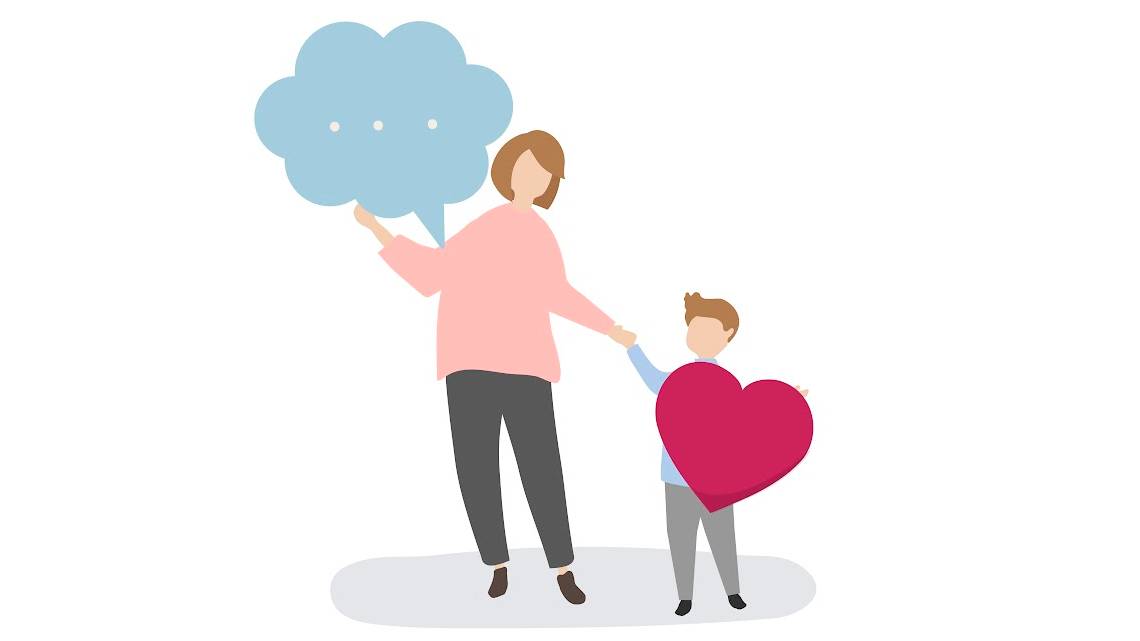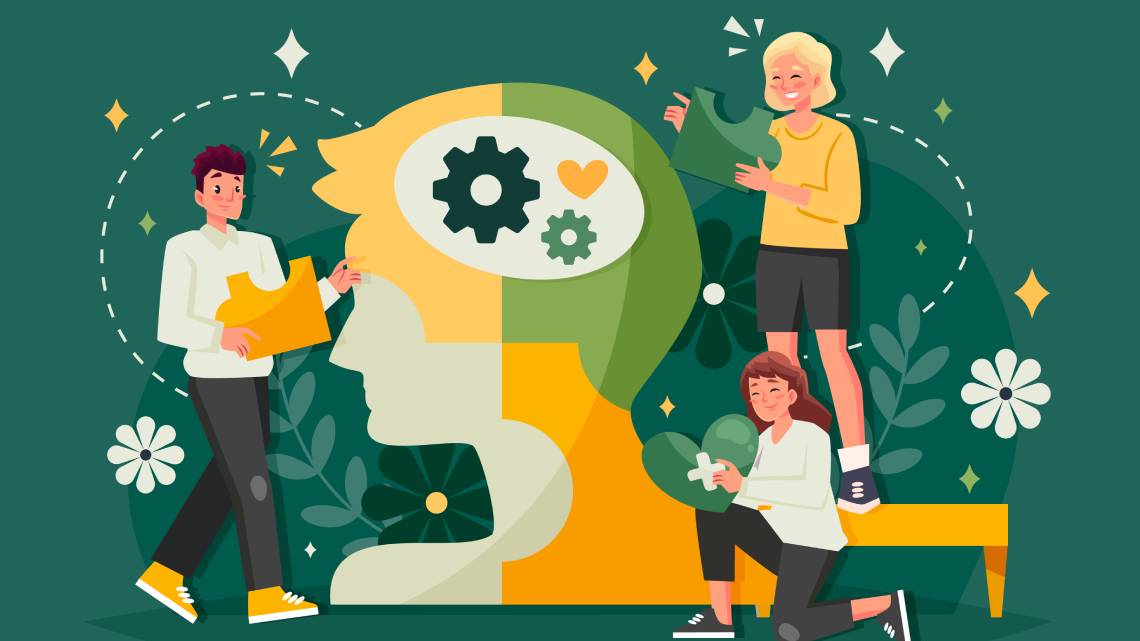
“Man up!”
“Crying is for the weak.”
“Suck it up!”
“You’re too sensitive.”
“Be a man!”
“Real men don’t cry.”
Since time immemorial, we have been hearing these phrases. Whether it’s schools, homes, or workplaces, these terminologies have remained constant. Hearing these words on loop leads to the reinforcement of traditional ideals that equate masculinity to suffering in silence, hiding true emotions, and trying to figure everything out on your own. This in turn takes a toll on men’s mental and emotional wellbeing. It leads to an internal struggle of stress, anxiety, depression, burnout, loneliness. And all of this just to uphold the dominant notions of masculinity that our society has construed.
How men cope with psychological distress
While women are likely to be conspicuous and forthright about their struggles, the signs in men tend to be remarkably different. Men tend to use negative coping mechanisms and externalize their distress through ‘acting out’ behaviors. These may include high levels of alcohol and drug misuse, dangerous risk taking, lack of impulse control, and increased anger and irritability. Alcohol is frequently linked to traditional ideas of masculinity and is often portrayed in society as ‘manly’ behavior, reinforcing gender stereotypes around male identity and substance use. Men often consume alcohol in order to numb their distress related to the expectations of their gender roles and to deal with stresses of their perceived failures. In addition to this, many men also rigidly conform to stereotypical masculine norms—such as suppressing or ignoring negative emotions, placing high value on self-reliance, and prioritizing autonomy over seeking help. These behaviors, often reinforced by societal expectations, can contribute to emotional isolation and hinder mental health support. This makes men’s mental health awareness and support more important than ever, especially as these norms act as barriers to well-being and recovery.

Their “no-talk” policy
Men’s reluctance to self-disclose is deeply rooted in their adherence to traditional masculine norms. Since childhood, they are taught crying and asking for help are signs of weakness. These outdated suppositions are often carried into adulthood where they crystallize as disconnection, isolation, or shame towards opening up and sharing feelings. Men’s communication behaviours are also affected negatively by the so-called “strong and silent man” image that they aim to uphold. Their restricted emotionality – fears about expressing their feelings – is another one of the reasons why their mental distress increases without any obvious signs. In addition, feelings of loneliness and social disconnection can significantly contribute to men’s reluctance to share their mental health concerns. When men feel they lack trusted relationships or supportive people to confide in, their likelihood of disclosing emotional distress decreases. To break this pattern, society must invest in long-term men’s mental health awareness and support, starting with early education around emotional expression and healthy coping strategies.
How can we offer support
Men’s mental health requires crucial awareness and support. Here are a few things we can do to help:
- Normalizing help-seeking behaviours and building awareness programs can go a long way in opening up the conversation on the importance of men’s mental health.
- Breaking traditional stereotypes surrounding masculinity by introducing role models that possess attributes such as empathy, vulnerability, and emotional expressiveness can help others adopt these characteristics.
- Curtailing stigma, making psychological care accessible and creating supportive environments can help enhance men’s mental health.
- Sharing experiences may pave the way for men to openly talk about their own.
- Implementing action-oriented or solution-focused schemes, where men can implement a variety of problem-solving exercises, active behaviour change, and management strategies, proves to be more promising than talk therapies.
- Highlighting the potential benefits of mental health treatment—and emphasizing how seeking help can lead to better long-term outcomes—may play a key role in increasing men’s motivation to reach out for support.
- Informing men about how and where to seek professional help, increasing workplace training and developing bridging services can propel them towards using existing services.
- Reframing help-seeking as a sign of strength and aligning it with positive masculine values—like responsibility and self-care, may improve men’s willingness to seek mental health support.
Ending the silence around men’s mental health awareness and support isn’t an overnight job. Rather it’s about rewriting the story. A story where men are given the space to express their feelings, to break down when needed, and to seek help without fear or shame. Ongoing recognition, open conversations, and compassionate support can help to tear down the stigma. Together, we can create a culture where emotional well-being is a priority for men and for everyone who stands beside them.
Photo Credits:
First image: SiberianArt
Second image: Mukhina1
References
Affleck, W., Carmichael, V., & Whitley, R. (2018). Men’s mental health: Social determinants and implications for services. The Canadian Journal of Psychiatry, 63(9), 581-589.
Bilsker, D., Fogarty, A. S., & Wakefield, M. A. (2018). Critical issues in men’s mental health. The Canadian Journal of Psychiatry, 63(9), 590-596.
Brooks, G. R. (2001). Masculinity and men’s mental health. Journal of American College Health, 49(6), 285-297.
Hunt, A. (2024). Supporting Men’s Mental Health: A Guide for Women. Loma Linda University. https://news.llu.edu/health-wellness/supporting-mens-mental-health-guide-for-women
Sagar-Ouriaghli, I., Godfrey, E., Bridge, L., Meade, L., & Brown, J. S. (2019). Improving mental health service utilization among men: a systematic review and synthesis of behavior change techniques within interventions targeting help-seeking. American journal of men’s health, 13(3), 1557988319857009.
Sherwani, M., & Syed, A. (2024). 5 ways to support men’s mental health and raise awareness. World Economic Forum. https://www.weforum.org/stories/2024/03/5-ways-to-support-mens-mental-health-and-raise-awareness/
Wagner, A. J., & Reifegerste, D. (2024). Real men don’t talk? Relationships among depressiveness, loneliness, conformity to masculine norms, and male non-disclosure of mental distress. SSM – Mental Health, 5, 100296. https://doi.org/10.1016/j.ssmmh.2024.100296

Sakshi
About the author
Sakshi is a clinical psychologist with a deep passion for understanding human behavior, a strong drive for research, and a keen eye for psychological intricacies. Committed to continuous learning, she seeks to explore every facet of psychology, from theory to practice, to better support and empower individuals. With a curiosity that fuels her pursuit of knowledge, she strives to bridge the gap between research and real-world applications, making psychology more accessible and impactful.
Recently Added
Virtual Reality (VR) is the use of various technologies to digitally simulate or recreate an environment in which an observer can realistically …
Parental mental health plays a monumental role in a child’s social, emotional, behavioural and psychological development. Parents and caregivers are central to …
Cognitive behavioral therapy (CBT) was initially developed by Aaron Beck in the 1960s and it is based on the cognitive model of …




